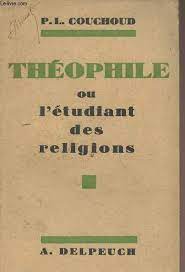In Canada, Attorney Murphy brought a case against Mr. Ernest-Victor Slerry of Toronto, accused of writing the following lines:
The God of the Bible is portrayed as someone who walks in the Garden of Eden, talks to a woman, curses a snake, sews skins to make clothing, prefers the taste of roasted chops to the smell of boiled cabbage, sits in a burning bush, comes out from behind rocks, an old rascal that Moses had a hard time calming, who, in fits of rage, massacred hundreds of thousands of his chosen people, and who would have killed them all if cunning Moses hadn’t reminded him: What will the Egyptians say?Obviously, these things are said without delicacy. But in the end, if the form is lacking, the substance is accurate. Not a word that cannot be supported by a reference. Long before the Christian era, the “anthropomorphisms” of the Bible shocked the Jews.
Under the blasphemy law, Mr. E.-V. Slerry was sentenced to two months in prison. The judge declared, “Our conception of God is an integral part of our national life. We view the Bible as the basis for all good laws in our country. It is the dearest and most precious book in the world to us.”
Couchoud, Paul Louis. Théophile ou L’étudiant des religions. Paris: André Delpeuch, 1928. p. 174 – ChatGPT translation
https://archive.org/details/couchoud-theophile
If you enjoyed this post, please consider donating to Vridar. Thanks!


So, this happened before 1928 as it appeared in the above reference?
How could that learned judge be so ignorant?
I loved the God description. Richard Dawkins’ famous passage was bitter depiction of a horrifying figure. This one reduced god to a risible target.
In p. 237 of the same book, Couchoud writes with the usual perspicacity :
Il [Jesus] a tout à perdre à être inscrit aux registres de l’histoire. Ceux qui nient son existence hislorique resteront les seuls à pouvoir défendre sa réalité spirituelle.
Holy words. I wonder how many times a strong impulse to be historicist is the implicit desire to condemn Jesus to the historical humanity, in order to accuse him, shortly after, of all the violence so well listed by Avalos in his book The bad Jesus.
Yes, those sentences jumped out and hit me, too, when I read them. For those who don’t read French, they translate as
I was planning on posting that entire chapter in translation along with a few passages highlighted — that being one of them.
(I don’t see anything so sinister in the motives of those wanting to consign Jesus to human history, though, as you suggest.)
“Sinister”? I don’t know how much it is “sinister” but surely I start from the assumption that, in terms of purely aesthetical judgements, an anti-theist is generally not interested at all “to defend the spiritual reality” of Zeus, Attis or Jesus. Why should he/she be satisfied that the mythicist Thomas L. Brodie continues to pray the catholic god? Vice versa, if he/she finds a moral fault in Zeus, Attis or Jesus, then the temptation for an anti-theist is strong to persuade the adorers to abandon the “defence of the spiritual reality”, on the assumption of a historical Zeus, Attis or Jesus considered as the original authors of a such moral fault (hence figures not worthy at all of an adoration). I use the term “anti-theist” rather than “atheist” because it better describes myself. But then again: this, if you want, is an “aesthetical” argument for historicity.
While I do not believe in the reality of Zeus or any god (as a presumably “spirit” being) it is necessary for me to understand and accept that the religions I am studying do posit the gods as real. It is in that sense that I study them as ancient religions. I am not interested in debunking those ancient beliefs.
In the same sense if I read the Gospel of Luke and see that it presents Jesus as a historical figure (also a divine one) I do not critique or condemn those beliefs as a historian but try to explain them, to understand their origins, for example.
But maybe I am misunderstanding your point, at least in some part.
Of course, now if you said that about pork chops in the presence of a Moslem, that’d be hate speech.
Which isn’t blasphemy because.
Fwiw, Couchoud treated blasphemy laws in relation to Christianity, Judaism and Islam equally. His final paragraph (translated) in the section from which I quoted in the post:
Original:
I have removed from my post the link to my copy of the original French publication. Copyright restriction is in force until 70 years after the author’s death and P-L Couchoud died in 1959.